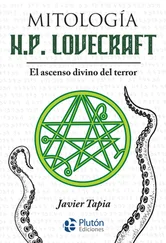On top of a tank, Michael Dukakis rode toward a bank of photographers and into the political sunset. Painful as the image is to recall, I bring it up for a reason. More than anything, that was what my newly enlisted father, Seaman 2nd Class Milton Stephanides, looked like as he bounced in a landing craft off the California coast in the fall of 1944. Like Dukakis, Milton was mostly helmet. Like Dukakis’s, Milton’s chin strap looked as though it had been fastened by his mother. Like Dukakis’s, Milton’s expression betrayed a creeping awareness of error. Milton, too, couldn’t get off his moving vehicle. He, too, was riding toward extinction. The only difference was the absence of photographers because it was the middle of the night.
A month after joining the United States Navy, Milton found himself stationed at Coronado naval base in San Diego. He was a member of the Amphibious Forces, whose job it was to transport troops to the Far East and assist their storming of beaches. It was Milton’s job—luckily so far only in maneuvers—to lower the landing craft off the side of the transport ship. For over a month, six days a week, ten hours a day, that’s what he’d been doing—lowering boats full of men into various sea conditions.
When he wasn’t lowering landing craft, he was in one himself. Three or four nights a week, they had to practice night landings. These were extremely tricky. The coast around Coronado was treacherous. The inexperienced pilots had trouble steering toward the diff lights, which marked the beaches, and often brought the boats to shore on the rocks.
Though the army helmet obscured Milton’s present vision, it gave him a pretty good picture of the future. The helmet weighed as much as a bowling ball. It was as thick as the hood of a car. You put it over your head, like a hat, but it was nothing like a hat. In contact with the skull, an army helmet transmitted images directly into the brain. These were of objects the helmet was designed to keep out. Bullets, for instance. And shrapnel. The helmet closed off the mind for contemplation of these essential realities.
And if you were a person like my father, you began to think about how you could escape such realities. After a single week of drills, Milton realized that he had made a terrible mistake joining the Navy. Battle could be only slightly less dangerous than this preparation for it. Every night someone got injured. Waves slammed guys up against the boats. Guys fell and got swept underneath. The week before, a kid from Omaha had drowned.
During the day they trained, playing football on the beach in army boots to build up their legs, and then at night they had the drills. Exhausted, seasick, Milton stood packed in like a sardine, shouldering a heavy pack. He had always wanted to be an American and now he got to see what his fellow Americans were like. In close quarters he suffered their backwoods lubricity and knucklehead talk. They were in the boats for hours together, getting slammed around, getting wet. They got to bed at three or four in the morning. Then the sun came up and it was time to do it all over again.
Why had he joined the Navy? For revenge, for escape. He wanted to get back at Tessie and he wanted to forget her. Neither had worked. The dullness of military life, the endless repetition of duties, the standing in line to eat, to use the bathroom, to shave, served as no distraction at all. Standing in line all day brought on the very thoughts Milton wanted to avoid, of a clarinet imprint, like a ring of fire, on Tessie’s flushed thigh. Or of Vandenbrock, the kid from Omaha who’d drowned: his battered face, the seawater leaking through his busted teeth.
All around Milton in the boat now guys were already getting sick. Ten minutes in the swells and sailors were bending over and regurgitating the beef stew and instant mashed potatoes of that evening’s dinner onto the ridged metal floor. This provoked no comment. The vomit, which was an eerie blue color in the moonlight, had its own wave action, sloshing back and forth over everybody’s boots. Milton lifted his face, trying to get a whiff of fresh air.
The boat pitched and rolled. It fell off waves and came crashing down, the hull shuddering. They were getting close to shore, where the surf picked up. The other men readjusted their packs and got ready for the make-believe assault, and Seaman Stephanides abandoned the solitude of his helmet.
“Saw it in the library,” the sailor beside him was saying to another. “On the bulletin board.”
“What kind of test?”
“Some kind of admittance exam. For Annapolis.”
“Yeah, right, they’re gonna let a couple of guys like us into Annapolis.”
“Doesn’t matter if they let us in or not. Deal is, whoever takes the test gets excused from drills.”
“What did you say about a test?” Milton asked, butting in.
The sailor looked around to see if anyone else had heard. “Keep quiet about it. If we all sign up, it won’t work.”
“When is it?”
But before the sailor could answer there was a loud, grinding sound: they had hit the rocks again. The sudden stop knocked everyone forward. Helmets rang against one another; noses broke. Sailors fell into a pile and the front hatch fell away. Water was streaming into the boat now and the lieutenant was yelling. Milton, along with everyone else, leapt into the confusion—the black rocks, the sucking undertow, the Mexican beer bottles, the startled crabs.
Back in Detroit, also in the dark, my mother was at the movies. Michael Antoniou, her fiancé, had returned to Holy Cross and now she had her Saturdays free. On the screen of the Esquire theater, numerals flashed . . . 5 . . . 4 . . . 3 . . . and a newsreel began. Muted trumpets blared. An announcer began giving war reports. It had been the same announcer throughout the war, so that by now Tessie felt she knew him; he was almost family. Week after week he had informed her about Monty and the Brits driving Rommel’s tanks out of North Africa and the American troops liberating Algeria and landing in Sicily. Munching popcorn, Tessie had watched as the months and years passed. The newsreels followed an itinerary. At first they’d concentrated on Europe. There were tanks rolling through tiny villages and French girls waving handkerchiefs from balconies. The French girls didn’t look like they’d been through a war; they wore pretty, ruffled skirts, white ankle socks, and silk scarves. None of the men wore berets, which surprised Tessie. She’d always wanted to go to Europe, not to Greece so much, but to France or Italy. As she watched these newsreels, what Tessie noticed wasn’t the bombed-out buildings but the sidewalk cafés, the fountains, the self-composed, urbane little dogs.
Two Saturdays ago, she’d seen Antwerp and Brussels liberated by the Allies. Now, as attention turned toward Japan, the scenery was changing. Palm trees cropped up in the newsreels, and tropical islands. This afternoon the screen gave the date “October 1944” and the announcer announced, As American troops prepare for the final invasion of the Pacific, General Douglas MacArthur, vowing to make good on his promise of “I shall return,” surveys his troops. The footage showed sailors standing at attention on deck, or dropping artillery shells into guns, or horsing around on a beach, waving to the folks back home. And out in the audience my mother found herself doing a crazy thing. She was looking for Milton’s face.
He was her second cousin, wasn’t he? It was only natural she should worry about him. They had also been, not in love exactly, but in something more immature, a kind of infatuation or crush. Nothing like what she had with Michael. Tessie sat up in her seat. She adjusted her purse in her lap. She sat up like a young lady who was engaged to be married. But after the newsreel ended and the movie began, she forgot about being an adult. She sank down in her seat and put her feet up over the seat in front.
Читать дальше
Конец ознакомительного отрывка
Купить книгу












